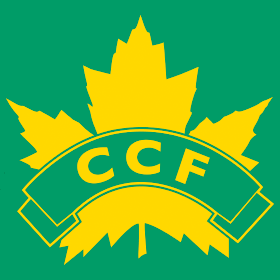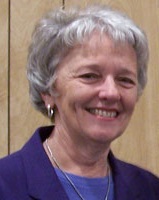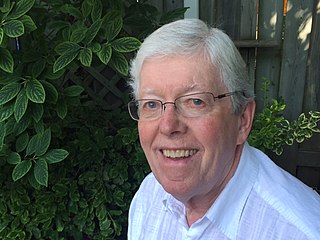Related Research Articles

The Co-operative Commonwealth Federation was a federal democratic socialist and social-democratic political party in Canada. The CCF was founded in 1932 in Calgary, Alberta, by a number of socialist, agrarian, co-operative, and labour groups, and the League for Social Reconstruction. In 1944, the CCF formed one of the first social-democratic governments in North America when it was elected to form the provincial government in Saskatchewan.

John Edward Broadbent was a Canadian social-democratic politician and political scientist. He was leader of the New Democratic Party (NDP) from 1975 to 1989, and a member of Parliament from 1968 to 1990 and from 2004 to 2006. He led the NDP through four federal elections. He oversaw a period of growth for the party with its parliamentary representation rising from 17 to 43 seats as of the 1988 federal election.

Audrey Marlene McLaughlin is a Canadian politician and former leader of the New Democratic Party from 1989 to 1995. She was the first female leader of a political party with representation in the House of Commons of Canada, as well as the first federal political party leader to represent an electoral district in a Canadian territory.

The Ontario New Democratic Party is a social-democratic political party in Ontario, Canada. The party currently forms the Official Opposition in Ontario following the 2018 general election. It is a provincial section of the federal New Democratic Party. It was formed in October 1961 from the Co-operative Commonwealth Federation and the Ontario Federation of Labour (OFL).

Alexa Ann McDonough was a Canadian politician who became the first woman to lead a major, recognized political party in Nova Scotia, when she was elected the Nova Scotia New Democratic Party's (NSNDP) leader in 1980.

The Communist Party of Canada is a federal political party in Canada. Founded in 1921 under conditions of illegality, it is the second oldest active political party in Canada, after the Liberal Party of Canada. Although it does not currently have any parliamentary representation, the party's candidates have previously been elected to the House of Commons, the Ontario legislature, the Manitoba legislature, and various municipal governments across the country.

The 1988 Canadian federal election was held on November 21, 1988, to elect members to the House of Commons of Canada of the 34th Parliament of Canada. It was an election largely fought on a single issue: the Canada–United States Free Trade Agreement (CUSFTA); the Progressive Conservative Party campaigned in favour of it whereas the Liberal Party and the New Democratic Party (NDP) campaigned against it.
The Waffle was a radical wing of Canada's New Democratic Party (NDP) in the late 1960s and early 1970s. It later transformed into an independent political party, with little electoral success before it permanently disbanded in the mid-1970s. It was generally a New Left youth movement that espoused both Canadian nationalism and solidarity with the Quebec sovereignty movement.

Miguel Figueroa is a Canadian political activist who was the leader of the Communist Party of Canada from 1992 to 2015. He is known for the landmark Figueroa case, which redefined the role of small parties and Canadian Parliamentary democracy, as well as his role re-establishing the Communist Party of Canada in the post-Soviet era.

The 1980 Canadian federal election was held on February 18, 1980, to elect members of the House of Commons of Canada of the 32nd Parliament of Canada. It was called when the minority Progressive Conservative government led by Prime Minister Joe Clark was defeated in the Commons.

The 1963 Canadian federal election was held on April 8, 1963 to elect members of the House of Commons of Canada of the 26th Parliament of Canada. It resulted in the defeat of the minority Progressive Conservative (Tory) government of Prime Minister John Diefenbaker, with the Liberals returning to power for the first time in 6 years, where they would remain for twenty of the next twenty-one years. For the Social Credit Party, despite getting their highest ever share of the vote, the party lost 6 seats compared to its high-water mark in 1962.

David Samuel Horne MacDonald is a Canadian United Church of Canada minister, former politician, and author.
The 1979 Alberta general election was held on March 14, 1979, to elect members of the Legislative Assembly of Alberta, which had been expanded to 79 seats.

The 1979 British Columbia general election was the 32nd general election in the Province of British Columbia, Canada. It was held to elect members of the Legislative Assembly of British Columbia. The election was called on April 3, 1979. The election was held on May 10, 1979, and the new legislature met for the first time on June 6, 1979.
Representation by women has been a significant issue in Canadian politics since 1900.
The Liberal Party of Canada fielded a full slate of 282 candidates in the 1979 Canadian federal election, and won 114 seats to become the Official Opposition in parliament. The party had previously been in government since 1963.
The Parti de la démocratie socialiste was a provincial political party in Quebec, Canada.
The New Democratic Party is a federal political party in Canada. Widely described as social democratic, the party occupies the centre-left to left-wing of the political spectrum, sitting to the left of the Liberal Party. The party was founded in 1961 by the Co-operative Commonwealth Federation (CCF) and the Canadian Labour Congress (CLC).

The 1989 New Democratic Party leadership election was held in Winnipeg, Manitoba, from November 30 to December 3 to elect a leader of the New Democratic Party of Canada. Ed Broadbent retired as federal leader, and Audrey McLaughlin was elected as his replacement. McLaughlin's victory was the first time a woman won the leadership of a major federal Canadian political party. This convention was followed by six years of decline for the party, culminating in the worst electoral performance of a 20th-century federal democratic socialist party, when the party received only seven percent of the popular vote in the 1993 federal election.
References
- ↑ Leo Heaps, Our Canada: The Story of the New Democratic Party Yesterday, Today and Tomorrow. Lorimer, 1991. ISBN 1550283537.
- ↑ "Woman leads Nova Scotia NDP". The Toronto Star . Toronto. Canadian Press. November 17, 1980. p. A5.